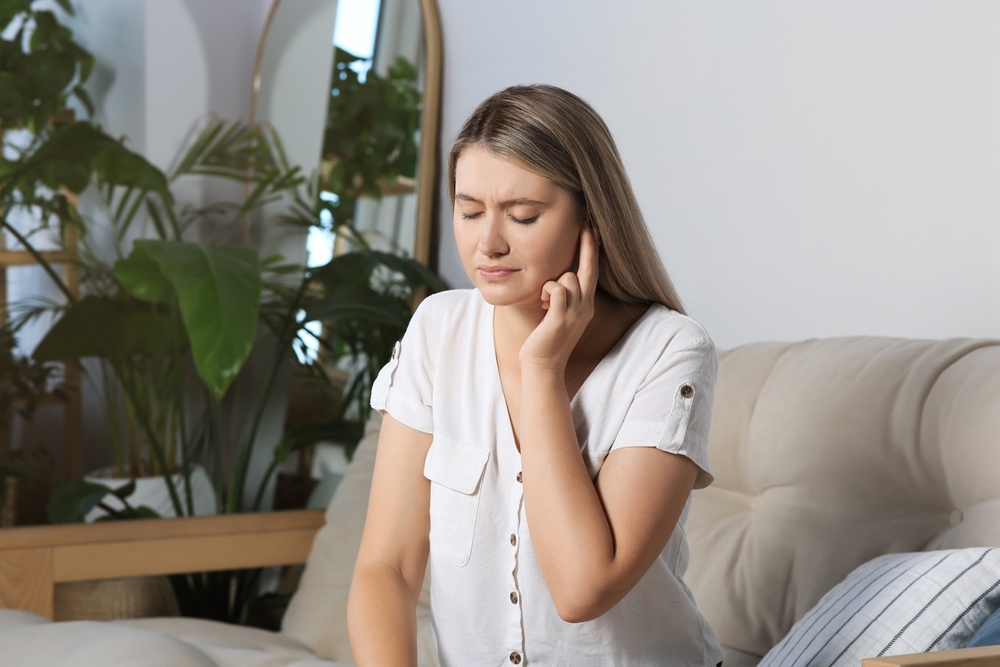The average adult gets 2-3 colds each year, making it one of the most common illnesses. Despite their frequency, colds can still leave you feeling miserable with symptoms like fevers, sore throats, runny noses, sneezing, and coughing. But one symptom that often goes unnoticed is ear congestion.
Understanding why your ears block after a cold
Blocked ears can arise from the congestion that occurs during a cold, impacting both your hearing and comfort. The reason your ears feel blocked after a cold is due to the interconnected nature of your nasal passages, sinuses, and ears. Your eustachian tubes, which connect your middle ear to your throat and nose, help regulate pressure in your ears. When you’re congested, excess mucus and fluids can build up and travel into these tubes, causing your ears to feel plugged or blocked.
The good news is that you don’t have to just wait for the blockage to go away. While it’s essential to consult a professional if you suspect an ear infection (look for symptoms like pain, pressure, fever, or discharge from the ear), there are several ways to relieve blocked ears caused by a cold.
Tips to relieve ear congestion
Here are five effective methods to clear your ears and ease your discomfort.
1. Gently blow your nose
It’s not your ears producing the excess fluid that leads to ear blockage; it’s the nasal and sinus congestion that causes the backup. As mucus and fluid build up in your sinuses, they can flow into your eustachian tubes, which connect your sinuses to your ears, leading to a blocked feeling in your ears.
One of the simplest ways to alleviate ear congestion is by gently blowing your nose. This clears out excess fluid from your sinuses and reduces the chances of it flowing into your eustachian tubes. However, avoid forceful nose blowing, as this can worsen the situation. Be gentle, as a violent blow can push more fluid into your ear canals and make things worse.
2. Use a humidifier to relieve dryness and inflammation
Dry air can irritate the nasal passages, leading to inflammation and further congestion, which contributes to ear blockage. When your eustachian tubes become inflamed, they constrict and create less space for fluid to drain. This blockage can cause discomfort in your ears, adding to the misery of a cold.
Using a humidifier helps maintain moisture in the air, preventing your nasal passages from becoming too dry and irritated. This can reduce inflammation, promote fluid drainage, and keep your ears more comfortable during a cold. You can also try placing a damp towel near a heater or use a steam treatment to create a similar effect if a humidifier isn’t available.
3. Stay hydrated to thin nasal mucus
A runny nose is not usually the main issue when it comes to blocked ears; it’s the stuffiness that causes fluid to build up and prevent drainage. Staying hydrated is key to alleviating ear congestion during a cold.
Drinking plenty of water helps thin the mucus in your nasal passages, making it easier for your body to expel it. This, in turn, helps reduce the fluid buildup in your eustachian tubes, improving ear congestion. Aim for 8-10 glasses of water a day to keep your body and sinuses properly hydrated.
4. Consider over-the-counter nasal decongestants
If your ear blockage persists despite staying hydrated, a nasal decongestant may help. These medications are designed to reduce swelling in the nasal passages and help fluids drain more easily, which can provide relief for your blocked ears. However, be cautious with decongestants, as they shouldn’t be used for more than three days in a row without consulting a healthcare provider.
Decongestants can sometimes have side effects, so make sure to follow the instructions on the label. If you have a runny nose, avoid decongestants, as they are best suited for stuffy noses and may exacerbate other symptoms.
5. Try nasal sprays or nasal irrigation
Nasal sprays or irrigation methods are effective at clearing out mucus and easing ear pressure. Saline nasal sprays can help moisturize and clear your nasal passages, promoting the movement of mucus and relieving ear congestion.
Some people find relief from using nasal irrigation systems, such as neti pots, which wash out the sinuses and nasal passages with saline solution. If you’re not familiar with these methods, start with a saline spray and follow the instructions carefully. Nasal decongestant sprays can also be effective but should be used with caution, as overuse can lead to a condition called rebound congestion.
When to see an ENT specialist
If your ears remain blocked for an extended period or if you experience any unusual pain or symptoms, seek medical advice from an ENT specialist to rule out any infections or more severe conditions.
Find an ENT specialist near you to schedule an appointment for blocked ears.



